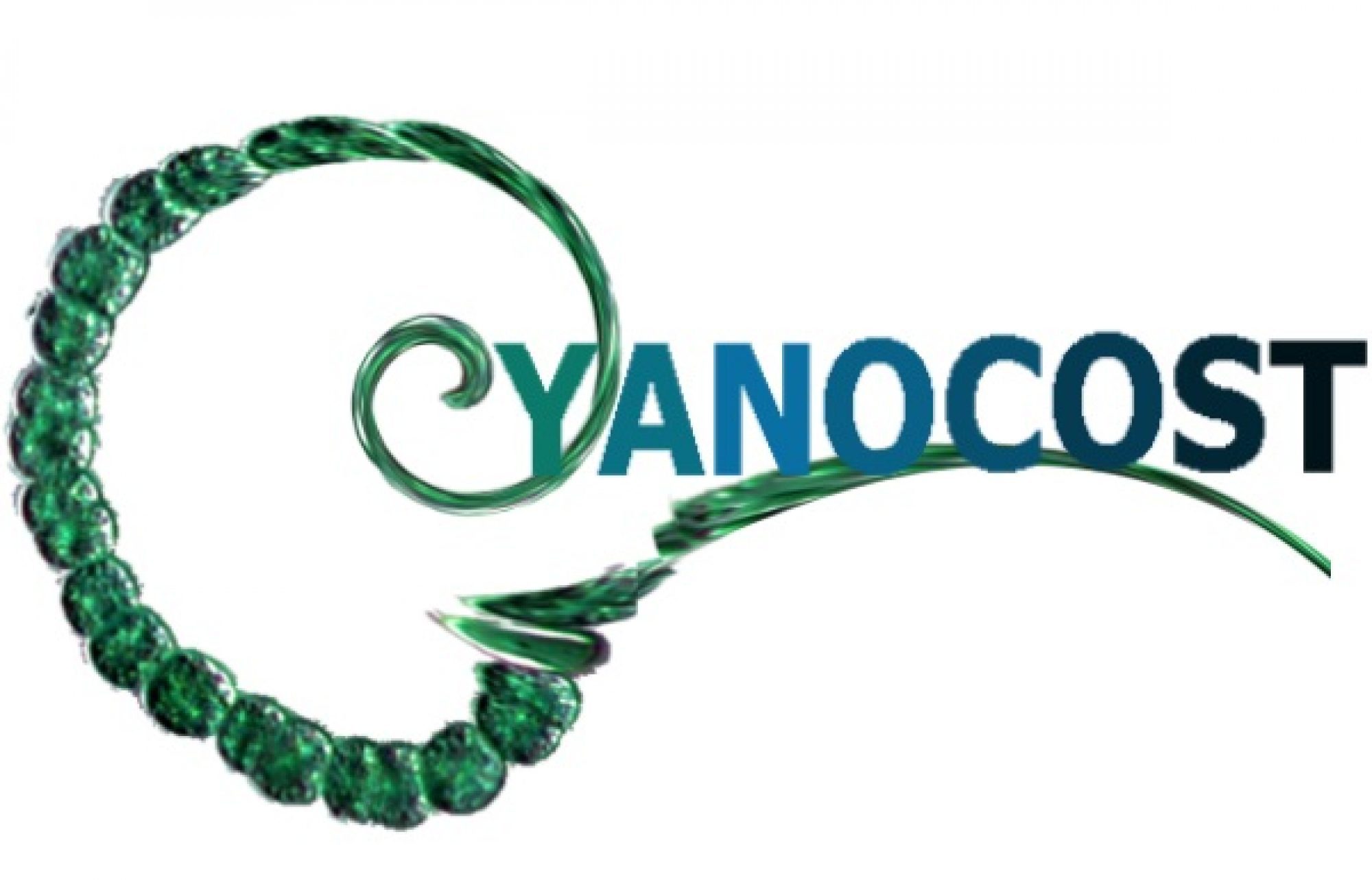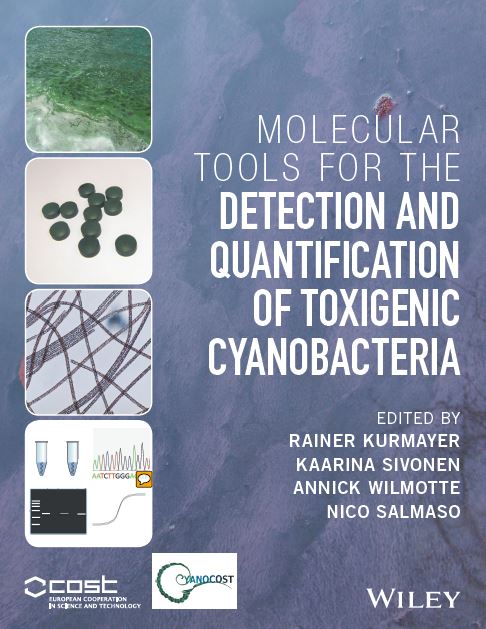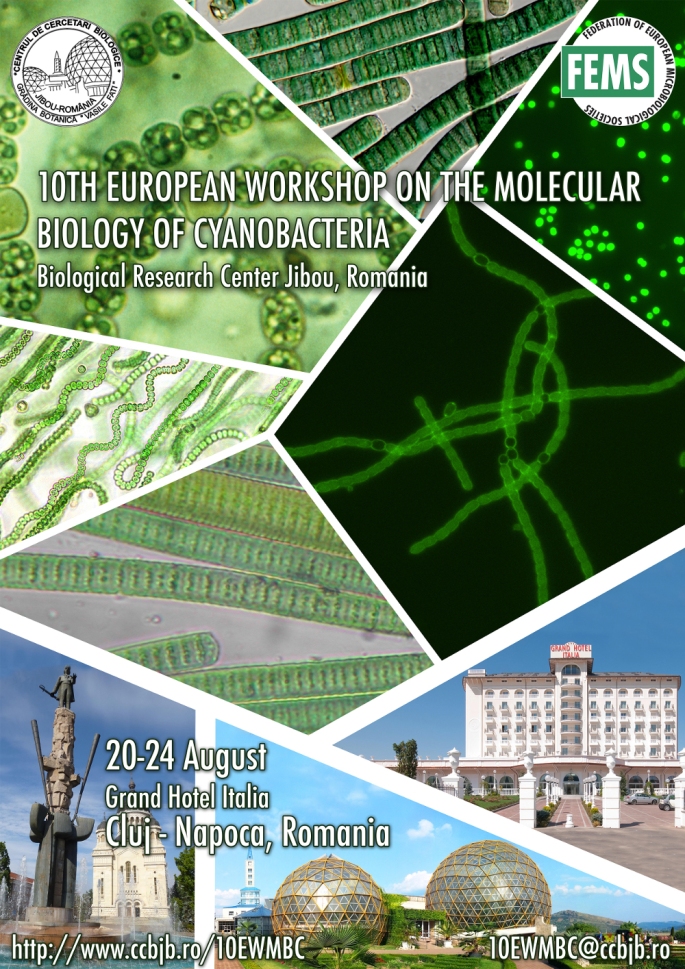This book (link to Wiley) is designed as a handbook describing the molecular monitoring of toxigenicity and diversity of cyanobacteria in surface waters including lakes, rivers, drinking water reservoirs but also in food supplements. This handbook, edited by Rainer Kurmayer, Kaarina Sivonen, Annick Wilmotte and Nico Salmaso is the first one of its type providing up-to-date overviews plus the necessary scientific basis for the subsequent use of molecular tools, qualitative and quantitative analyses and the interpretation of the results.
Although genetic methods are only able to indicate the potential of toxin synthesis it is possible that molecular detection tools will also support risk assessment in the future. On the other hand if the cyanobacteria do not have genes for toxin production they are not able to produce a specific toxin. The use of molecular tools in monitoring comprises (i) Early warning (i.e. waterbodies bearing a risk in toxic bloom formation could be identified early on in the growing season possibly assisting in an economically more efficient application of cyanotoxin detection techniques), (ii) Understanding environmental drivers (i.e. early identification of toxigenic genotype occurrence may lead to a more detailed recording of environmental factors potentially influencing the abundance of toxigenic genotypes), (iii) Identifying toxigenic cyanobacteria (i.e. by sequencing of PCR amplified DNA fragments indicative of cyanotoxin synthesis).
44 standardized operational protocols (SOPs) written by 37 scientists participating in the CYANOCOST network describe the steps of water (food supplement) sampling (six protocols), cyanobacterial strain isolation and purification (six protocols) and taxonomic assignment (two protocols), nucleic acid extraction (eight protocols) and downstream analysis including conventional PCR (nine protocols) as well as qPCR (eight protocols) but also diagnostic and transcriptomic microarray (two protocols), genotyping (one protocol) and community characterization by Next Generation Sequencing techniques (two protocols). A list of toxic strains containing the respective target genes and which are available through international culture collections has been compiled and will serve as reference materials and control measures to make sure that a specific molecular method works. Finally the application of molecular tools is reviewed with regard to environmental samples but also with regard to quality control in microalga biomass production.
The handbook is intended to be used by trained professionals analyzing cyanobacterial toxigenicity and diversity in water samples in the laboratory in both academic and governmental institutions, as well as technical offices and agencies which are in charge of water body surveillance and monitoring. Students will learn important methods’ standards of essential protocols including steps from sampling until results evaluation.
Download a flyer of the two published CYANOCOST books here.





